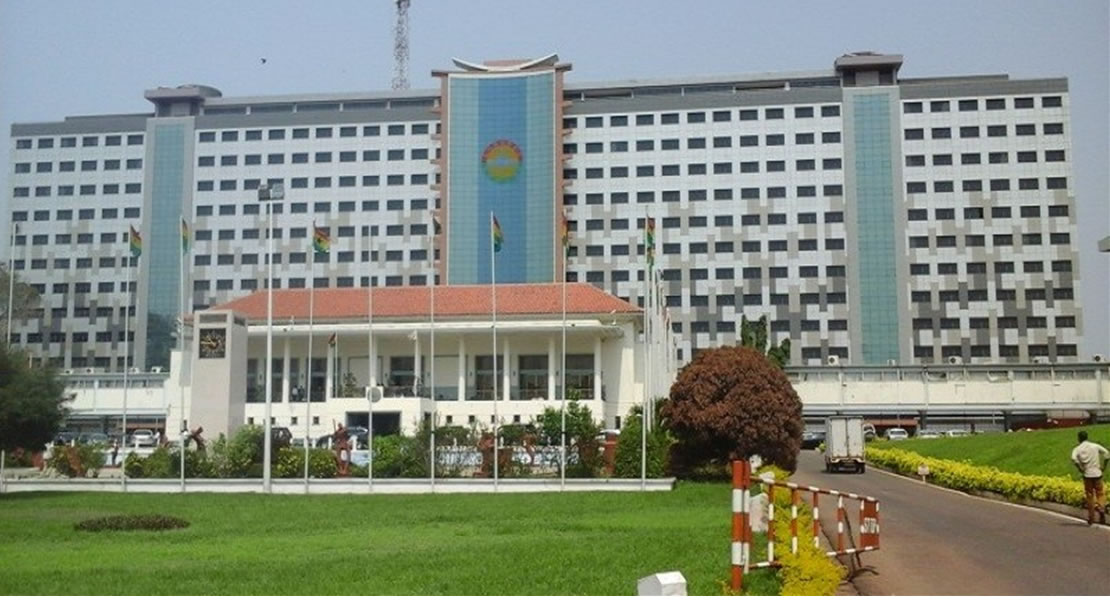
Barely six months after the new Parliament building was completed and occupied, fixtures and fittings such as door handles and urinals have already broken down because they are of inferior quality.
A report of the House Committee on the State of Security and General Maintenance signed by Alhaji Rashid Pelpuo (NDC-Wa Central), Deputy Majority Leader in Parliament, attributed the situation to lack of supervision during the construction.
The project, which started in 2004, was undertaken by Amoako and Amoako Construction Limited, and the initial contract sum was GH¢1,800,000.00 (18 billion old cedis).
The report which was the subject matter of a closed-door meeting of the House last Friday, said the Director of Development at the Office of Parliament “Shockingly informed the committee that he was not allowed to exercise professional responsibility by the previous Parliamentary Service Board and as such the consultant and contractor could get away with the shoddy and inferior work”.
“The director claimed he was not only stopped from interfering with the work of the contractor but was also banned by the previous board from entering the project site,” the report said.
The previous board chaired by the former Speaker of Parliament, Ebenezer Sekyi Hughes, comprised the former Majority Leader in Parliament, Felix Owusu-Adjapong, then Minority Leader in Parliament, Alban Bagbin, former Clerk to Parliament, K.E.K Tachie, the late Joseph Darko Mensah, and former Member of Parliament for Okaikoi North and Martin Abrefa Tawiah and Rosemary Arthur as secretaries.
The report said “the CCTV cameras installed in Parliament had on several occasions proven to be malfunctioning as attempts to locate lost items revealed that the cameras were not functioning even though so much money was invested into the installation of the facility in order to reduce security threats to MPs and staff of the House.”
“Similarly, scanners procured to scan the belongings of persons entering the House were not functioning due to break down and lack of maintenance,” it said.
The committee observed that there was “general lack of security within the precincts of Parliament as Members of Parliament are exposed to unidentifiable visitors within the various corridors, lobbies and places of convenience strictly reserved for MPs”.
Source: Ghanaian Times